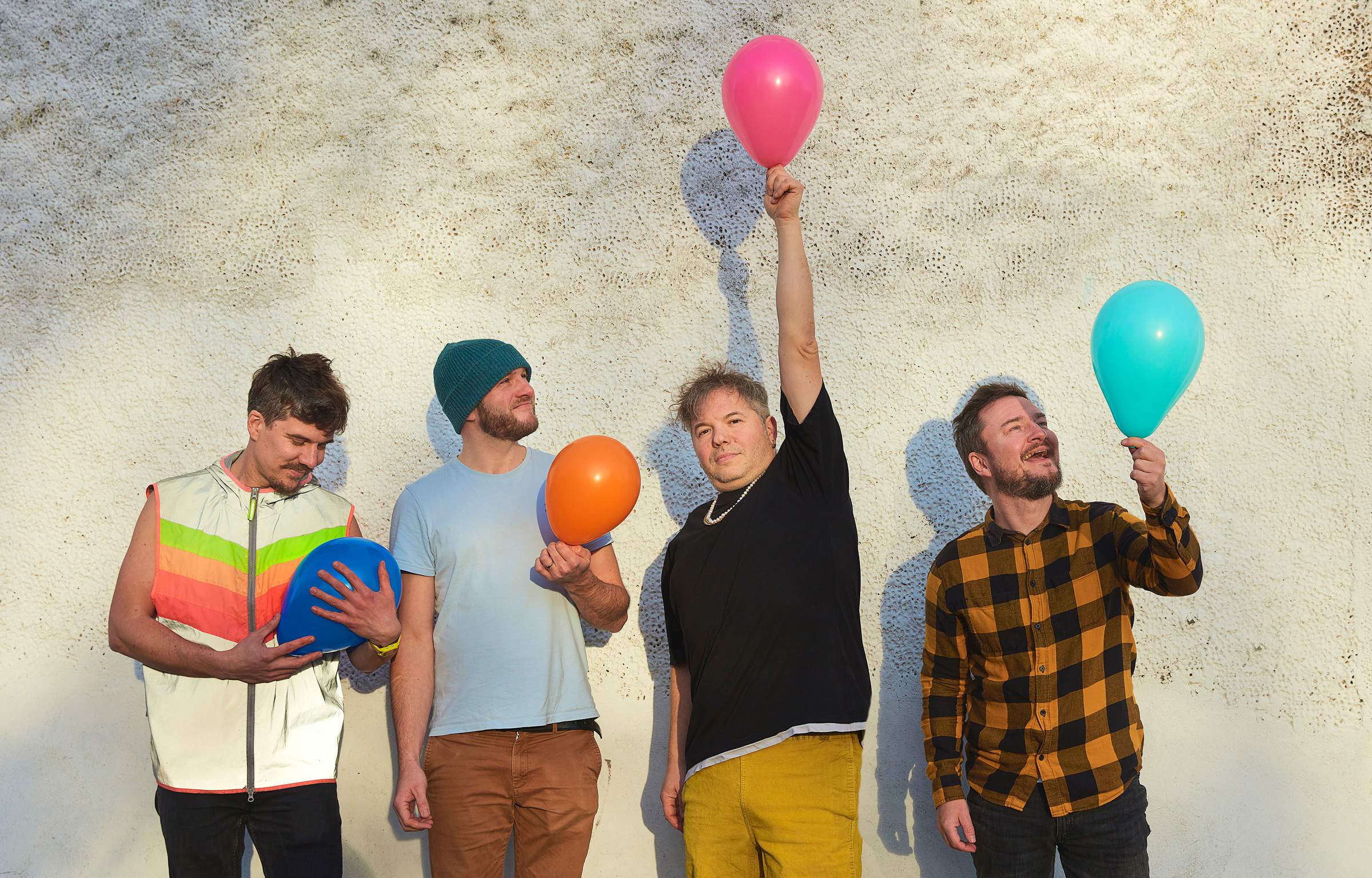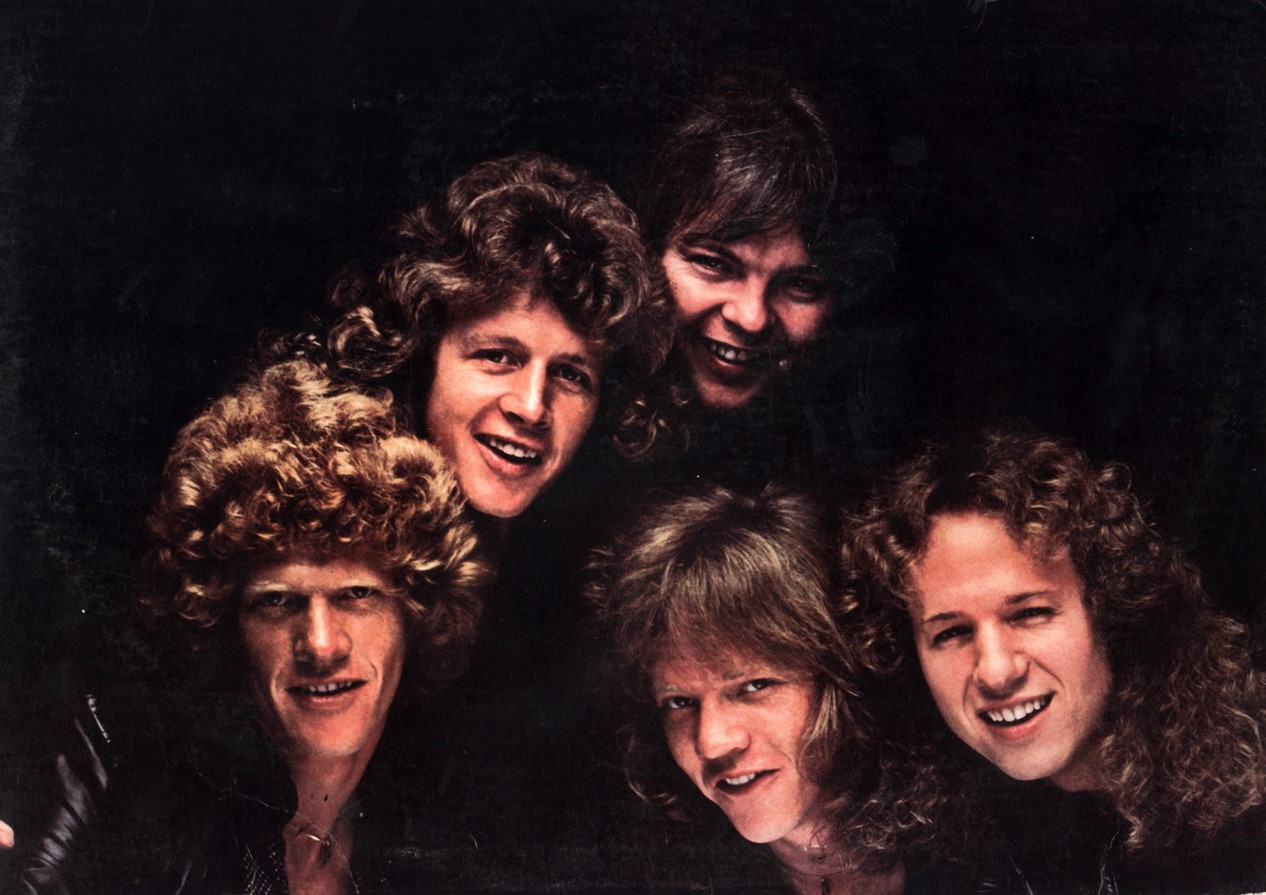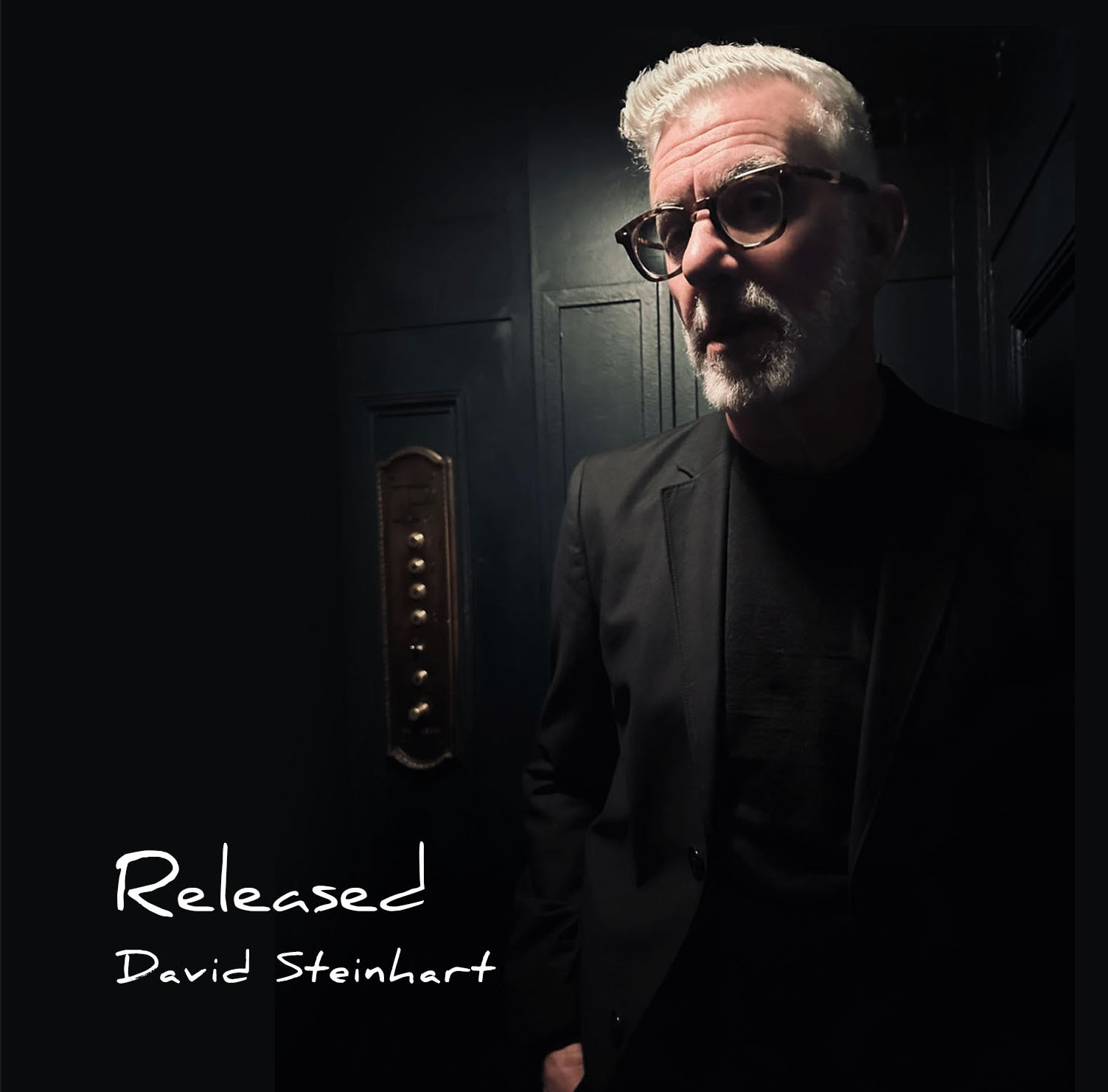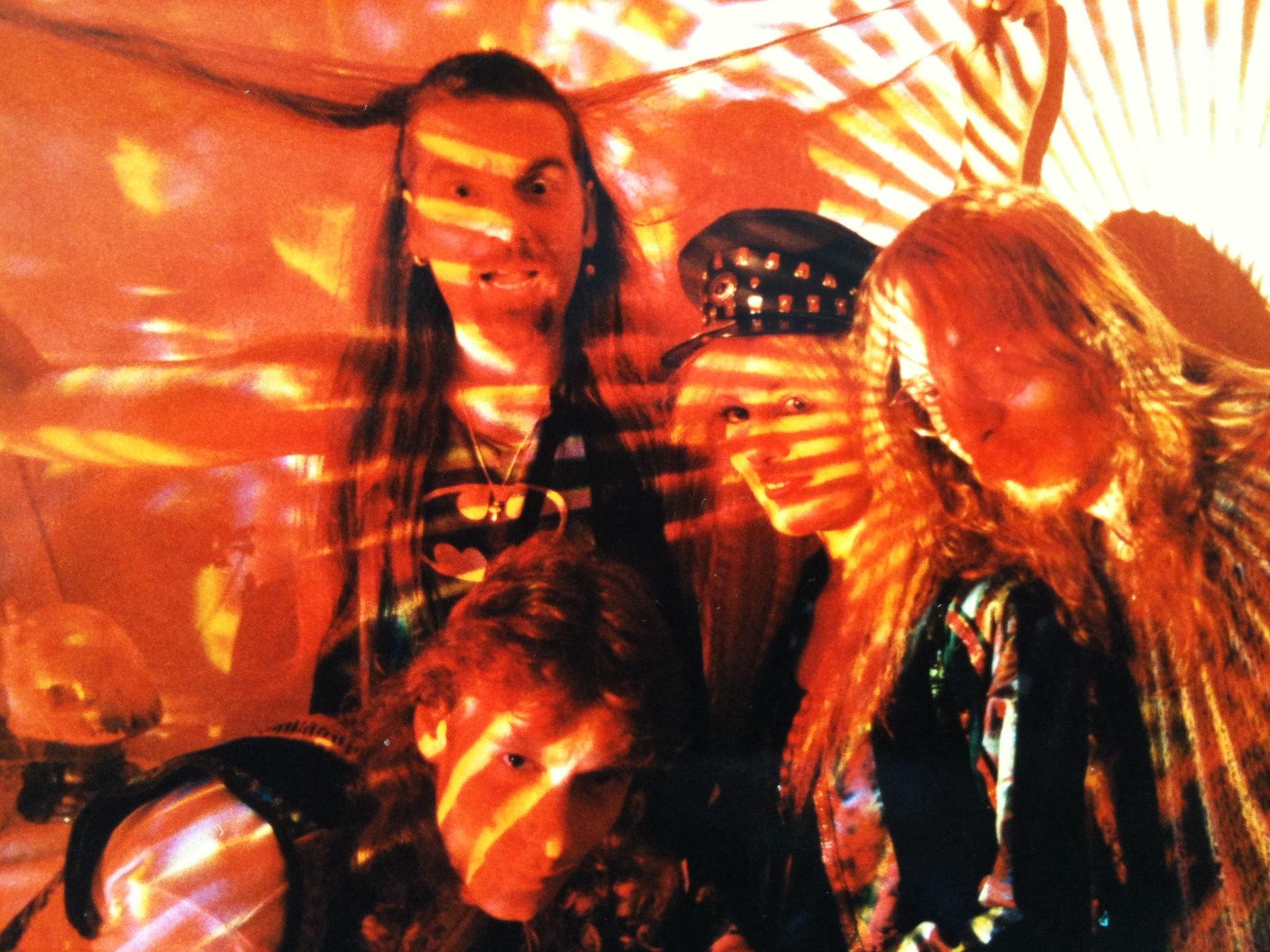Billions Of Comrades | Interview | New Album, ‘Trotop’
‘TROTOP’ by the Belgian-based quartet Billions Of Comrades represents a powerful fusion of music and visuals, with contributions from artists like Ophélie Lhuire, Gil Mortio, and Laurent Eyen shaping its final sound.
The band’s creative process is deeply rooted in personal experiences and collective collaboration, addressing themes like social justice, freedom, and the complexities of relationships. Their music invites listeners to reflect, deconstruct societal norms, and embrace a more inclusive, radical perspective. With an energetic live show that fosters an intimate connection with their audience, the band emphasizes the importance of freedom and self-expression.

“Freedom with kindness is an essential value for us”
The concept of ‘TROTOP’ seems deeply rooted in the idea of freedom. Could you delve into how this theme influenced the album’s creation process?
Freedom with kindness is an essential value for us. Far from selfish freedom, it’s a vector of fulfillment. It opens the possibilities mentally, socially, politically, and artistically! We wanted to compose songs that sweat our passion with fewer limits and more spontaneity. We wanted to feel freer to express ourselves on stage, to be in trust with our energy. Today, we feel it on stage as never before, and it’s really liberating!
In the lyrics, too, we also find this need to get out of mental and social constraints. It’s crazy to realize that, but yes, from the process to the words, ‘TROTOP’ is all about freedom!
‘TETONS’ stands out as a bold anthem advocating for gender-neutral liberation. How did the idea for this track originate, and what impact do you hope it will have on listeners?
Becoming aware of gender inequalities is very impactful emotionally. In our vision of the world and our place, there’s no turning back. In order to make this observation, we used to be constructive and contribute to the building of a world more just for all of us, kids included! It’s crucial to create bridges between people!
A nipple is cute, but it is also a weapon of feminist struggle against the issues of dominance in our society. Double standards, the male gaze, hypersexualization, confiscation of breastfeeding, censorship, and mercantilization: while this violence is experienced daily by a large part of the population, it is important for us to join this protest movement to relay and share with our public the values of respect, kindness, and unconditional equality between beings. Freedom may start with a nipple. For us, it’s clear: #freethenipple and #freeteton.
The shooting of the clip with the production company Jekyll N’Hyde and our friend Emilie was super cool and made exactly what we wanted to convey as a message: everything is us!
‘OUR HOURS’ was released post-pandemic, aiming to replace fear with the joy of togetherness. How did the events of the past year shape the song’s composition and message?
Like everyone else, we have been impacted by the pandemic. Although privileged, it was found that, as always, decisions made from a political point of view were biased and didn’t take into account a multitude of people. The effects of these repeated lockdowns still reverberate today. Far from any conspiracy, we think that every decision has a benevolent value that decreases when the public is away from the “norm” of people who want to dominate — a straight, white, cis guy over 30 years. And it disgusted us; we had too much hatred! We translated all this incomprehension into music and words, and ‘OUR HOURS’ was born. Since the phenomenon was global, a feature was needed, and Mike Watt was very enthusiastic, so on a phone call, the matter was settled. This guy is so involved!
So we made a video with a lot of people in it to exorcise the loneliness of everyone. We also did quite a few wild gigs during the lockdown under the banner of Still Standing for Culture, a rebellion initiative to continue to bring culture and support cultural venues and their teams identified by the policies as non-essential. Two or three lockdown parties — that’s what this track is about!
‘SCAB AALO PAM’ addresses the fight against police violence. Could you share more about the inspiration behind this track and your vision for its contribution to social discourse?
Anxious about the inequality of our society, the police are authorized to intimidate, hurt, or kill to maintain order and not peace. To protect a patriarchal and capitalist system known as sexist, racist, classist, and ableist. A privileged corporation supported by and for people who are even more so. Police violence is a fact, fought at different levels with intelligence, violence, and creativity. ACAB or SCAB AALO PAM, to be more shaded, is an outlet track to contribute in our own way to this crucial fight for a just and fulfilling society!
ACAB, as a slogan, but we will not be able to change this situation only with slogans, and it’s crucial that we do something so that the police can no longer murder and injure with impunity and that its role is regulated by the people.
“UNITÁ” brings an Italo dance frenzy infused with an ode to acceptance. How do you balance the energetic beats with the message of inclusivity within the song?
It is always with this sense of urgency that the songs are built at home. Here, the frenzy of the drums and the keyboard was the perfect soundtrack to pose a voice with a more Mediterranean sound because, for the moment, it is in this sea that people lose their lives, hoping to flee insuperable situations, which are inhumane and rejected out of hand by states stuck in the feudal era. Being Italian and aware of how the mood has changed lately in this delicious country… We had to mix all these ingredients so that the sauce (tomato) would take!
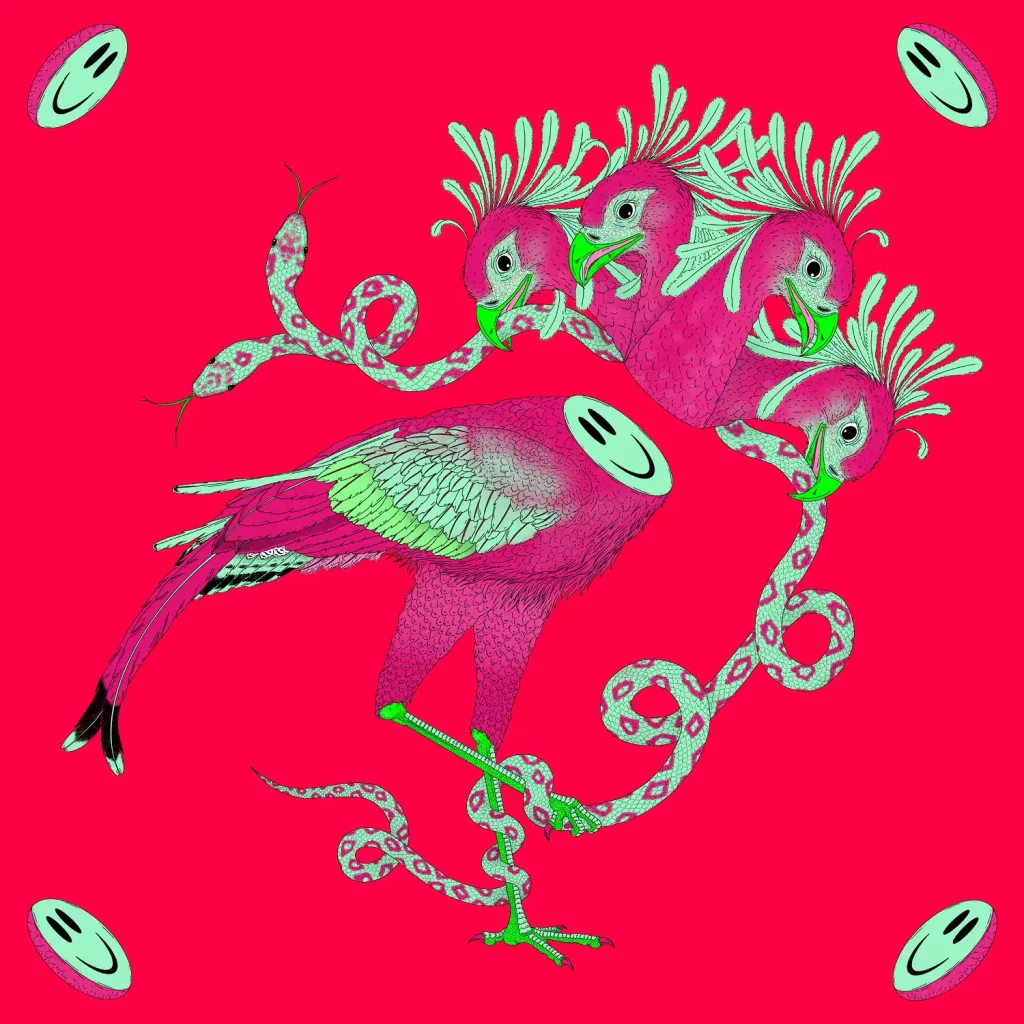
“We like to play with our limits”
Your lyrics traverse multiple languages. How do you navigate the linguistic landscape to convey your messages effectively across different audiences?
We like to play with our limits, so why not use other languages and challenge ourselves? The use of foreign languages in our group is also there to improve our lexicon, learn, and sing whatever the language is. It’s like using effects pedals, each with its own sound and suitable for a certain subject or melody.
‘BOOMGANG’ was inspired by a discussion on consent and benevolence in gay relationships. Can you elaborate on how personal conversations and experiences influence your songwriting process?
We are four people composing our music, based on ideas or jams, but the themes and topics that cross our project come from our daily lives, discussions, our experiences, and our positions. It is an outlet, of course, and especially on stage where we can also share and release the energy that inhabits us, but it is also a way to question our opinions and our inconsistencies to evolve, deconstruct subjects, rebuild them, radicalize or moderate, to discuss… It is a real space for exchange, and the repercussions are reflected in our music, in our lyrics, and also in our way of managing the project. The price of our merchandise, the people we work with, how to plan a concert, etc. On ‘BOOMGANG,’ we really wanted to ask what the differences are between gay relationships, whether lesbian or straight. It is a way of deepening subjects to question people here. A friend, Letizia, marked me in her speech by her awareness that girls are asked before kissing… Nothing more was needed for us to be conquered by the idea and to make a piece of it!
‘1480’ is described as an instrumental trip referencing your hometown. How does your connection to Tubize manifest within the music, especially in an instrumental piece?
We all come from Tubize, and the very violent and significant strikes for our country that took place there marked us a lot. Our name, our political and social orientation all transpired to this realization that if we are a lot, we can change things! We wanted to mark the occasion, and we named this instrumental piece 1480! The somewhat raw but also jazzy aspect brings us to the aesthetics of the forges of Clabecq, the place of our childhood!
‘CABRA’ draws from sampled memories of your tour of Spain. How do these personal experiences inform the track’s fervent advocacy for the freedom to dance?
During a tour in Spain, we recorded this sound in the street, and we really wanted to do something with it. We let ourselves be guided by the constraints of the sample; we composed a song that we recorded in the studio without really knowing what it would give. We slept there, and after a short night, we wrote the lyrics in Spanish, and in half a day, it was recorded! Everything pointed us in the direction of dance—the audience’s, our own on stage, the joy of this moving art—and we want that no one is ashamed and may dance freely; they love it, dance badly, but dance to free their body and mind.
Collaboration seems integral to your creative process. How do the diverse contributions of artists like Ophélie Lhuire, Gil Mortio, and Laurent Eyen shape the final product of ‘TROTOP’?
Since the start, we have surrounded ourselves with people whose work we admire. It’s really great to share the creation of a project. Humanly and artistically, we are really averse to this operation! For ‘TROTOP,’ we wanted a very specific sound for the drums that takes an important place, and everyone advised us to go to the Koko studio, and that’s how we met Laurent, whose methods suited us perfectly and were very live and relaxed. Gil has produced three albums with us; we know each other, we know today how to work together, and we really like his sense of arrangement and production!
Ophélie had an illustrative crush, and we asked her if it was good to start an album cover project. Working with her was fluid and very pleasant, and we are super proud of the result. Without these people, our album would not be so TROTOP. Thanks to all of them for their talent and for what they are!
The visuals accompanying your music, from videos to illustrations, play a significant role in shaping the overall experience. How do you approach the visual aspect of your art, and what do you aim to convey through these mediums?
We are 3 graphic designers in this quartet, and we all grew up in the 90s with MTV and magazines; it left traces! What makes a band great is the ability to express oneself musically on stage, on topics that are meaningful to us, as well as visually. As you say, it makes the experience complete. For us, it’s great to have the opportunity to write and design a fanzine for the release of this album in addition to the vinyls and the rest of the merchandise! It exists, and it’s the same for the music videos; it’s really nice to see, without knowing too much at the beginning, what our song looks like in the video! It makes everything more complete and more alive!
You mentioned the importance of renewal before embarking on the creative journey for “TROTOP.” How did this period of individual and collective renewal influence the album’s sound and thematic direction?
We went on our own to see a little more of the world and explore different countries. Chris, the guitarist, released a mini-solo album; Arnaud, the bassist, trained in music therapy and released an album with another project; Damien, the drummer, also redoubled his exercise at home with an electronic drum set; and personally, I started dancing and tested methods of music production. During this time, we continued to rehearse every week (or almost every week), giving ourselves time to evolve. A bit like water before boiling, we had to accumulate energy and heat to let everything flow with this album!
What’s next for you?
Concerts, new encounters, and already a desire to complete our live set with new songs! Let each concert be a party and create bridges with audiences that we do not know yet!
Have you found something new lately you would like to recommend to our readers?
Little Simz: ‘NO THANK YOU’
Yves Tumor: ‘Praise A Lord Who Chews But Which Does Not Consume; (Or Simply, Hot Between Worlds)’
Thank you for taking the time to participate. The last word is yours.
Everyone is TROTOP, including you!
Klemen Breznikar
Headline photo: Delphine Gilson
Billions Of Comrades Official Website / Facebook / Instagram / Bandcamp / YouTube
Rockerill Records Official Website / Facebook / Instagram / Bandcamp
Black Basset Records Official Website / Facebook / Instagram / Bandcamp / YouTube
‘Tetons’ by Billions of Comrades | New Album, ‘Trotop’

